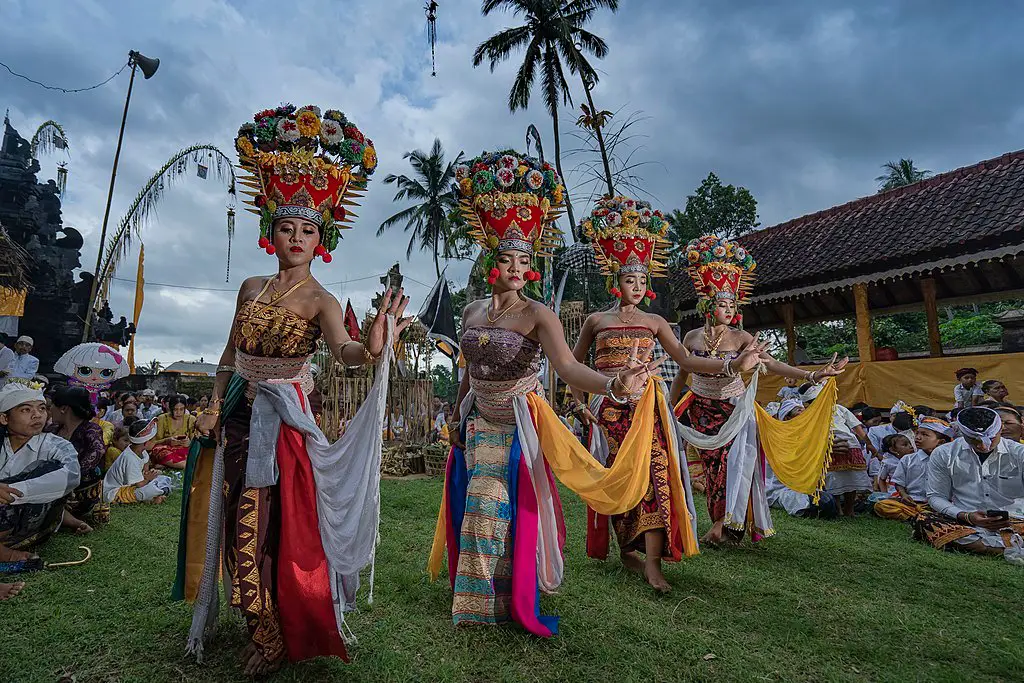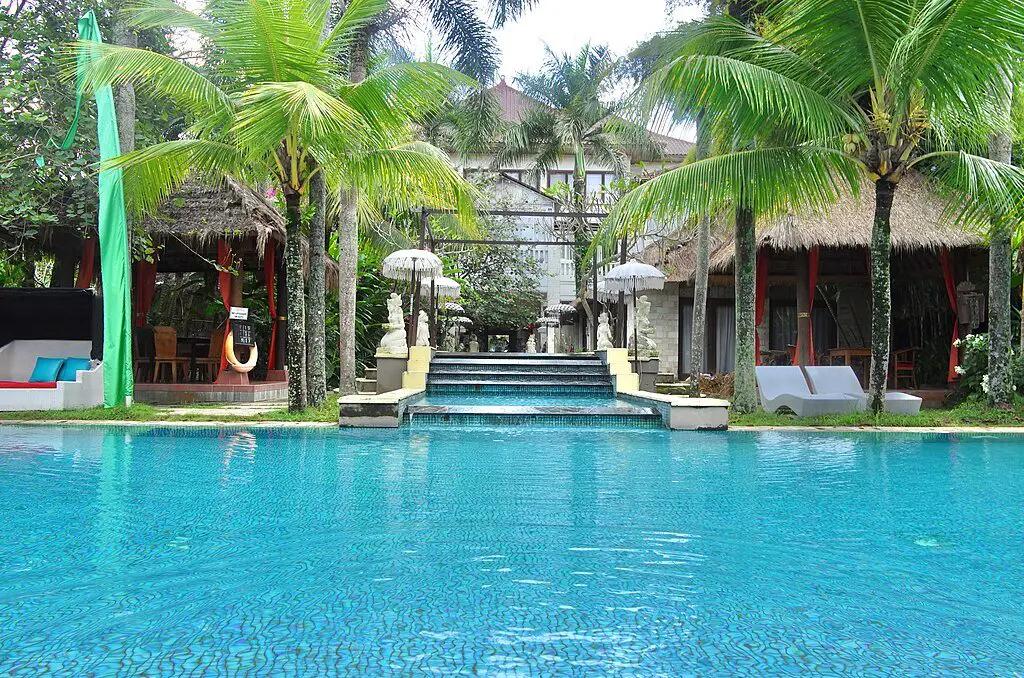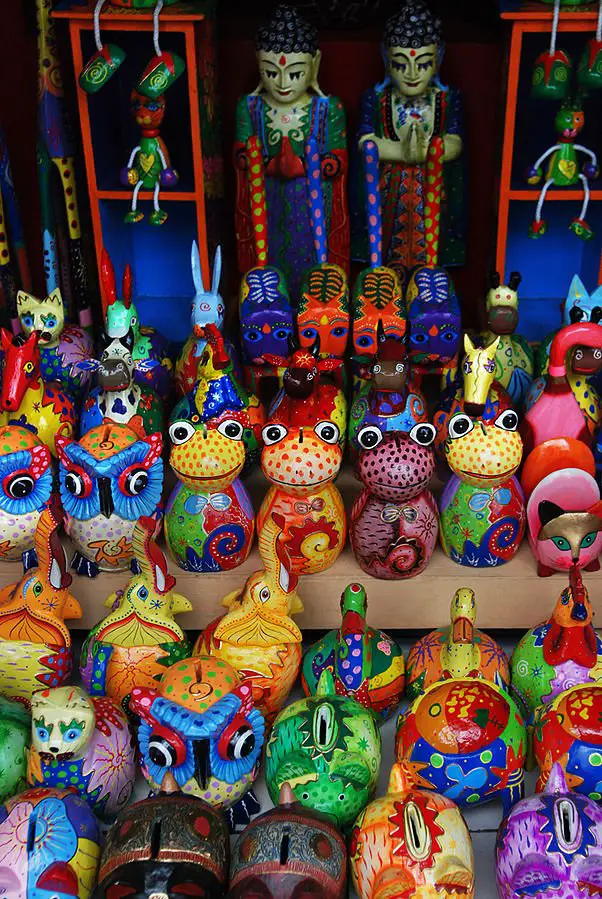Bali, an Indonesian island renowned for its ethereal beauty, captivating culture, and rich historical significance, has emerged as one of the most sought-after travel destinations in the world. Visitors are drawn to its stunning beaches, where golden sands meet cerulean waters, creating an idyllic backdrop for relaxation and adventure. The island’s extensive coastline offers an array of water sports, sunbathing opportunities, and vibrant nightlife, making it a paradise for both thrill-seekers and those in search of tranquility.
Beyond its picturesque beaches, Bali is steeped in culture and tradition. It boasts a unique blend of Hindu and Buddhist influences, reflected in its numerous temples, festivals, and elaborate ceremonies. The sacred temples of Bali, such as Uluwatu and Besakih, are not only architectural marvels but also serve as vital spiritual centers for the local populace. With intricate carvings and stunning landscapes, these sites provide a glimpse into the island’s profound spiritual heritage.
The island’s cultural richness is further enriched by the artisanal crafts and performances that are deeply embedded in Balinese society. Visitors can indulge in traditional dance performances, art workshops, and local culinary experiences, all of which highlight the island’s creative spirit and hospitality. The vibrant markets, lined with handmade crafts and local produce, offer travelers the opportunity to engage with the community while taking home unique souvenirs.
Bali’s historical significance cannot be overlooked, as its origins date back to ancient civilizations. Historical landmarks and archaeological sites scattered across the island tell stories of its past and the evolution of its culture. As a destination that harmoniously intertwines nature, culture, and history, Bali continues to inspire awe and capture the hearts of travelers from across the globe.
The Alluring Beaches of Bali
Bali, often referred to as the Island of the Gods, is renowned for its stunning beaches that attract millions of visitors each year. Each beach offers unique features and activities, making it a destination that caters to a diverse range of preferences. Among these, Kuta, Seminyak, and Nusa Dua stand out as the most popular choices for both tourists and locals.
Kuta Beach is famous for its vibrant atmosphere and lively social scene. Known for its dynamic surf conditions, it attracts numerous surfers, ranging from beginners to experts. The golden sands provide an ideal spot for sunbathing, while the numerous beach bars and clubs offer entertainment well into the night. Visitors can enjoy water sports such as jet skiing and parasailing during the day, or simply relax with a delicious local meal as the sun sets.
Seminyak Beach, a short distance from Kuta, provides a more upscale experience. This area is characterized by luxury resorts, chic beach clubs, and high-end restaurants. The beach is a haven for those seeking relaxation in a sophisticated environment. Activities here include yoga on the beach, spa treatments, and sunset cocktails. Seminyak is also an excellent location for shopping enthusiasts, with a range of boutiques offering unique local clothing and arts.
Nusa Dua, known for its pristine shoreline and well-maintained beachfront resorts, provides a tranquil escape. This beach area is perfect for families, offering calm waters ideal for swimming and snorkeling. Moreover, Nusa Dua hosts numerous cultural events and exhibitions, allowing visitors to immerse themselves in Balinese traditions. Overall, Bali’s beaches offer an enticing blend of relaxation, adventure, and culture, making them a must-visit when exploring this enchanting island.
Sacred Temples: A Journey Through Spirituality
Bali is undeniably a sanctuary for those seeking both spiritual enrichment and architectural beauty. The island is dotted with a multitude of sacred temples, each reflecting a rich tapestry of history, culture, and religious significance. Among these, Uluwatu Temple and Tanah Lot stand out as prime examples of Bali’s spiritual heritage, drawing visitors from around the globe to experience their uniqueness.
Uluwatu Temple, perched dramatically on the edge of a steep cliff overlooking the ocean, is renowned not only for its breathtaking views but also for its spiritual significance within Balinese Hinduism. Believed to be a guardian of the island, this temple is dedicated to the spirits of the sea. Visitors can explore its intricately carved gates and ancient shrines, which are surrounded by a verdant landscape. The temple also hosts the famous Kecak dance performance at sunset, adding a cultural dimension to the spiritual ambiance.
On the other hand, Tanah Lot Temple is celebrated for its stunning seaside location, where waves crash against its rocky base. This temple is one of Bali’s most photographed and revered sites, symbolizing the harmony between nature and spirituality. It is dedicated to Bhatara Segara, the sea god, and serves as a cultural icon that attracts both pilgrims and tourists. The temple’s architectural design is a perfect representation of traditional Balinese elements, complemented by the dramatic coastal scenery that enhances its spiritual allure.
Both Uluwatu and Tanah Lot exemplify the integral role that sacred temples play in the Balinese way of life, serving as centers for worship, community gatherings, and cultural celebrations. Exploring these sacred sites provides not only a glimpse into Bali’s spiritual practices but also an appreciation of its extraordinary architectural accomplishments.
Balinese Cuisine: A Gastronomic Delight
Balinese cuisine is a vibrant tapestry of flavors, textures, and colors that reflects the island’s rich cultural heritage and agricultural bounty. Influenced by a blend of Indonesian traditions and regional spices, this culinary scene offers a diverse array of dishes that embody the essence of Bali. Signature dishes like Nasi Goreng and Mie Goreng serve as the quintessential examples of Balinese comfort food, where fried rice and noodles are complemented by an array of fresh ingredients and aromatic spices.
One cannot discuss Balinese food without mentioning the iconic Babi Guling, or spit-roasted pig, which is often the centerpiece of festive celebrations. This dish features tender meat infused with an array of flavorful spices, including turmeric and lemongrass, and is typically served with rice, vegetables, and a spicy sambal. Another must-try is Bebek Betutu, a dish consisting of slow-cooked duck wrapped in banana leaves, resulting in a richly flavorful meal that captures the traditional cooking techniques of Bali.
Dining experiences in Bali go beyond simply enjoying a meal; they often encompass an immersive cultural moment. Visitors can explore vibrant local markets, where the colors and aromas of fresh produce, spices, and traditional snacks can stimulate the senses. Notably, Warungs, small family-owned eateries, provide an authentic atmosphere for sampling local dishes. These establishments often serve home-cooked meals that highlight the unique flavors of Balinese cuisine.
As one embarks on a culinary journey through Bali, it is essential to indulge in the island’s traditional offerings of satay, a skewered meat dish served with peanut sauce, and sayur urab, a salad of mixed vegetables tossed in grated coconut. For dessert, try Pisang Goreng, deep-fried banana, which perfectly encapsulates Bali’s sweet side. Balinese cuisine serves not just as sustenance but as a reflection of a rich cultural identity, inviting all who visit to savor its delights.
Vibrant Arts and Traditions of Bali
Bali is renowned for its vibrant arts scene, which reflects the island’s rich cultural heritage and spiritual traditions. The island’s arts are deeply intertwined with its daily life and religious practices, manifesting themselves in various forms including traditional dance, painting, and handcrafted items. These art forms not only serve as expressions of creativity but also as vital components of Bali’s identity.
Traditional Balinese dance is one of the most captivating aspects of the island’s arts scene. Rooted in religious expressions, these dances often portray tales from Hindu epics such as the Ramayana and Mahabharata. Performances are characterized by intricate movements, elaborate costumes, and live gamelan music, creating a multisensory experience. Events such as the Ubud Readers and Writers Festival showcase these traditional performances, allowing visitors to appreciate the artistry and cultural significance behind each dance.
In addition to dance, Balinese painting has significant historical roots. Artists utilize vibrant colors and intricate patterns to create works that depict spiritual themes, nature, and daily life. Markets throughout the island, particularly in Ubud, are filled with stunning paintings that capture the essence of Bali’s landscapes and culture. Workshops provided by local artists offer visitors a chance to engage in painting classes, enriching their understanding of Balinese artistic techniques.
Crafts also play an essential role in Bali’s cultural landscape. The exquisite craftsmanship of textiles, wood carvings, and pottery reflects the skills passed down through generations. Local festivals, such as Galungan and Kuningan, celebrate these traditions, with elaborate decorations, ceremonies, and the showcasing of crafts. Such events create a vibrant atmosphere, uniting locals and visitors in appreciation of Bali’s artistic heritage.
Through its diverse arts and cultural activities, Bali continues to be a vibrant hub of creativity, inviting travelers to explore and experience the depth of its traditions.
Adventure Activities: Thrill-Seekers’ Paradise
Bali is renowned for its stunning landscapes, diverse ecosystems, and vibrant culture, making it an ideal destination for adventure seekers. The island offers a plethora of activities that cater to those looking to indulge in thrilling experiences. Among the most popular options are water sports, which include surfing, scuba diving, and snorkeling. With world-class surf breaks along the southwestern coastline, surfing attracts enthusiasts from around the globe. The beaches of Kuta and Uluwatu, for instance, provide excellent waves for both beginners and experienced surfers.
Scuba diving is another exhilarating activity that allows adventurers to explore Bali’s underwater marvels. Notable dive sites such as the USS Liberty wreck in Tulamben and the coral reefs of Nusa Penida feature remarkable marine biodiversity, including vibrant coral gardens and various fish species. Snorkeling trips are also readily available and provide an accessible alternative for those who may prefer to stay closer to the surface.
For those who seek land-based adventures, Bali’s landscapes boast a range of hiking opportunities. A popular choice is the hike up Mount Batur, an active volcano that offers a mesmerizing sunrise experience. The trek is accompanied by breathtaking views of Lake Batur and the surrounding landscapes. Additionally, jungle trekking in Ubud allows adventurers to immerse themselves in Bali’s lush interiors, with guided tours showcasing the island’s unique flora and fauna as well as its thriving rice paddies.
Coupled with cultural experiences, such as visiting traditional Balinese villages or participating in local ceremonies, Bali presents a well-rounded thrill-seeking retreat. Whether navigating the waves, exploring underwater realms, or traversing mountain trails, Bali’s diverse adventure landscape ensures that every adventurer can find their perfect chase.
Wellness and Relaxation in Bali
Bali, renowned for its stunning landscapes and rich culture, serves as a sanctuary for those seeking wellness and relaxation. The tranquil environment of this Indonesian paradise provides the perfect backdrop for rejuvenation. Visitors can immerse themselves in various wellness options, from yoga retreats to luxurious spa experiences. The island has become a hub for mindfulness practices, drawing individuals from around the globe who are eager to escape the hustle and bustle of daily life.
Yoga retreats in Bali offer a unique opportunity to connect with both nature and oneself. Many establishments, such as those situated in Ubud or along the coastline of Canggu, provide an array of yoga styles, catering to practitioners of all levels. These retreats typically include daily yoga sessions, meditation practices, and nourishing meals, enabling participants to detoxify both mind and body. The serene surroundings, often accompanied by lush rice paddies or calming ocean views, enhance the overall experience, allowing for deep relaxation and reflection.
In addition to yoga, Bali’s spa culture is famous for its traditional treatments, which often incorporate local ingredients and healing techniques. Spa facilities range from high-end resorts to quaint, budget-friendly locales, offering a variety of services such as massages, facials, and body scrubs. Balinese massages, characterized by their blend of gentle stretches and acupressure, are particularly popular and revered for their therapeutic benefits. Furthermore, many spas feature outdoor treatment areas surrounded by nature, allowing guests to unwind in an atmosphere of peace and tranquility.
Ultimately, Bali stands out as a destination that not only offers aesthetic beauty but also provides ample opportunities for personal growth and relaxation. Whether through yoga or spa treatments, the island invites individuals to embark on a transformative journey towards wellness.
Shopping in Bali: Unique Souvenirs and Handicrafts
Bali is renowned not only for its stunning beaches and sacred temples but also for its vibrant shopping scene, which offers an array of unique souvenirs and handicrafts. Visitors to the island have ample opportunities to explore traditional markets, specialized art shops, and local artisan boutiques, each presenting an authentic glimpse into Balinese culture. A visit to Ubud, often regarded as the cultural heart of Bali, is essential for those seeking traditional Balinese arts and crafts. The Ubud Art Market is a treasure trove of handwoven textiles, intricate wooden carvings, and delicately crafted jewelry, where travelers can engage with local artisans who pour their heart and soul into their work.
In addition to Ubud, the bustling markets in Kuta and Seminyak offer a more modern shopping experience. While these areas are filled with chic boutiques and contemporary goods, they also feature stalls that sell traditional Balinese items, such as batik clothing and colorful sarongs. Engaging with local vendors can lead to interesting conversations, providing insights into the cultural significance of various pieces. For those looking for bespoke souvenirs, head to artisan villages like Celuk, known for its silver jewelry, or Mas, famous for its intricate wood carvings.
It is worth mentioning that bargaining is a common practice in many of Bali’s markets. Shoppers should be prepared to negotiate in order to secure the best prices on their desired items, which not only enhances the experience but also fosters a sense of connection with local culture. Overall, shopping in Bali allows visitors to take a piece of this enchanting island home. Whether it is a handcrafted sculpture or a beautiful textile, each purchase serves as a reminder of the rich heritage and artistic talent found in this remarkable destination.
Planning Your Trip: Tips and Recommendations
When planning your trip to Bali, several key factors will enhance your experience on this enchanting island. One of the first considerations is the timing of your visit. The best months to enjoy Bali’s tropical climate are from April to October, which is the dry season. During this period, travelers can expect pleasant weather and minimal rainfall, making it ideal for exploring stunning beaches, sacred temples, and immersing oneself in the island’s vibrant culture.
Transportation within Bali is another vital aspect to consider. While the island has a variety of transportation options, renting a scooter is popular among tourists for its convenience and cost-effectiveness. This method allows you to explore at your own pace while discovering hidden gems off the beaten track. However, it’s essential to ensure you hold a valid international driver’s license and wear a helmet for safety. If you prefer a more relaxed option, consider hiring a taxi or a private driver, which is often available through ride-hailing apps. This way, you can enjoy the scenery without the stress of navigating unfamiliar roads.
Accommodation in Bali ranges from luxurious resorts to budget-friendly hostels, catering to various preferences and budgets. For a premium experience, areas like Nusa Dua and Seminyak offer lavish resorts with stunning ocean views. For travelers seeking a more authentic experience, consider staying in Ubud, known for its lush landscapes and cultural sites. Guesthouses and homestays can also be wonderful alternatives, allowing for personal interactions and local insights. Regardless of your choice, booking accommodations in advance, especially during peak season, is advisable to secure the best rates and locations.













